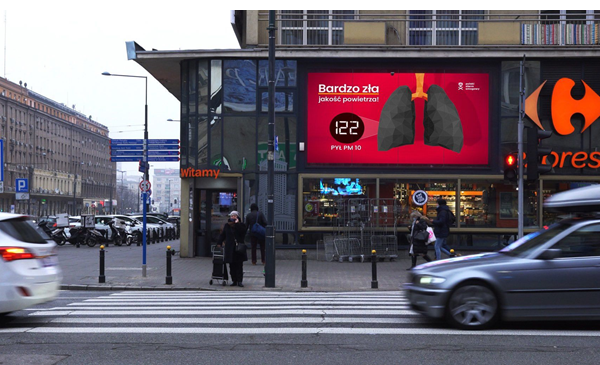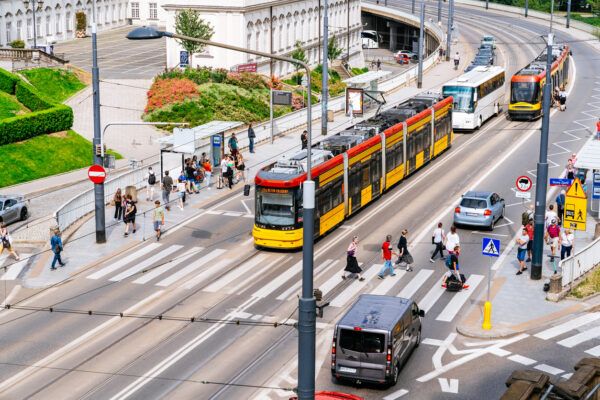The problem:
- Imports of old polluting cars: The average age of passenger vehicles in Poland is 14.9 years and exceeds the EU average. Over 800,000 second-hand cars are imported annually from other EU countries, which often fail technical and environmental inspections in their countries of origin.
- High emissions from illegal modifications: Many imported vehicles are illegally modified, becoming significant sources of air pollution, particularly emitting nitrogen dioxides (NOx) and particulate matter (PM). Diesel cars are particularly problematic as their diesel particulate filters (DPF) are often removed. A car without a DPF filter emits up to 20 times more pollutants than one with a functional filter.
- Inadequate inspections: The lack of strict control procedures during regular technical inspections exacerbates the problem, as illegal modifications go unnoticed. A 2024 report by the Supreme Audit Office (NIK) highlighted excessive emissions from illegally modified cars as a pressing air quality issue, particularly in densely urbanised areas
The solution:
To improve air quality, vehicles that do not adhere to emissions standards, particularly diesel cars, need to be removed from Poland’s streets.
The Electric Vehicles Promotion Foundation (Fundacja Promocji Pojazdów Elektrycznych or FPPE) is a non-governmental organisation supporting the green transformation of transportation in Poland and Europe. To address air pollution concerns, FPPE realised that mandatory vehicle inspections need to be changed to identify and penalise illegally-modified second-hand cars.
FPPE’s experts prepared a set of amendments for Poland’s Minister of Infrastructure’s public consultation on draft regulations on the scope of periodic technical inspections for vehicles. FPPE’s submission called for the introduction of mandatory diagnoses of devices responsible for limiting the emissions of pollution from diesel and petrol engines. FPPE was the only stakeholder in the consultation proposing a solution that targets emissions from old cars that have malfunctioning, deactivated or absent devices.
FPPE’s advocacy led to the introduction of two amendments to the regulations in November 2022 and February 2023. For the first time, diesel vehicles have to undergo mandatory tests for the presence, efficiency and correct functioning of pollution control systems, primarily the catalytic converter, diesel particulate filter (DPF) and AdBlue systems. Tests for petrol engine vehicles were also amended to ensure properly functioning pollution-reducing systems.
According to the new regulations, vehicles showing emission-related faults are classified as having “Serious Defects”, leading to automatic failure of the inspection. These regulations intend to prevent environmentally-damaging car modifications.
How vehicle inspection stations put these tests into practice will be critical to cleaning up our air. Unfortunately, we have seen that a significant number of tests are not carried out in accordance with the regulations. We will continue to put pressure on the Ministry of Infrastructure and the relevant institutions supervising vehicle inspection stations to strictly enforce compliance with the current law.
Aleksander Szałański from FPPE
Drivers also need to be aware of the scope of mandatory technical inspections. FPPE is working to build public awareness of air pollution from diesel vehicles and mandatory inspections of DPFs. FPPE delivered a “Before you buy a diesel” guide and a ‘Stop Diesel’ campaign to inform drivers.
The impact:
The exact impact on air quality is difficult to estimate, due to the unknown scale of illegal car modifications. The new regulations target vehicles that meet Euro4 emission standards and above, registered since 2005. There are 35 million vehicles registered in Poland, 57% of which are younger than 20 years old. 19.5 million cars are “legally active”, meaning 23% are older than 20 years old, according to the Polish Automotive Industry Association. So the regulations have the potential to curb emissions from a large proportion of highly polluting cars.
To sustain improvements, further reforms in the national technical inspection system are necessary. FPPE will continue advocating for stricter regulations that limit the use and import of older vehicles, especially older diesel vehicles. This could include charging drivers fees based on a “polluter pays” principle.

